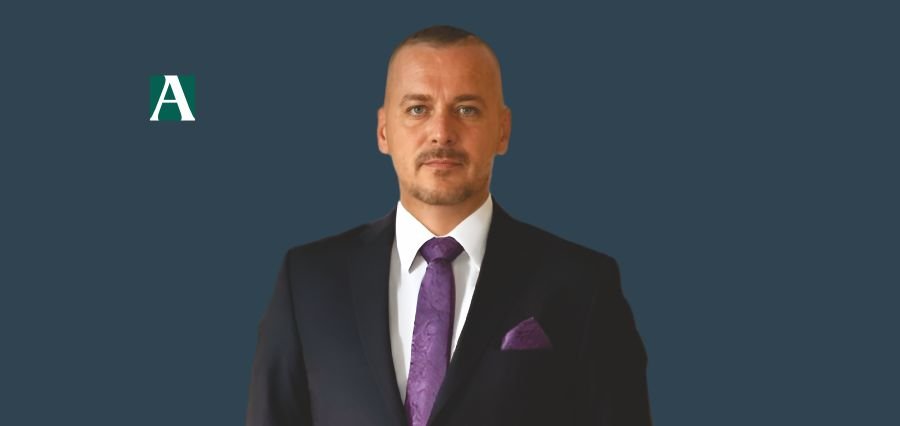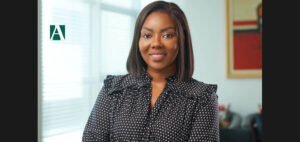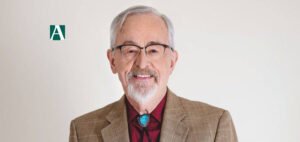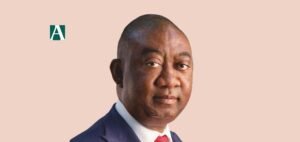Africa is on the verge of a remarkable economic transformation. Opportunities for fearless leadership that can understand both local context and global potential are unparalleled in Africa because of its natural richness, youth, and emerging markets. These up-and-coming African business executives see business as a tool for social transformation, going beyond traditional financial metrics. They establish sustainable businesses that promote economic self-determination and continental expansion while empowering individuals.
Richard Fraser’s name is associated with revolutionary force, something that very few African entrepreneurs possess. Fraser, the CEO and executive chairman of Fraser Legacy Holdings (PTY) LTD, is presently among the most resilient business architects in Africa.
The establishment of private villas in Eritrea marks the beginning of Fraser’s adventure, which ends with him leading a pan-African investment conglomerate. Africa’s economic rise can be attributed to his visionary drive, ethical leadership, and unwavering belief that business has the power to change societies.
The Foundation of Purpose-Driven Leadership
Fraser’s leadership philosophy revolves around empowerment, purpose, and integrity. As opposed to most corporate managers who consider leadership as an order, Fraser is convinced that leadership is for the people, clients, and communities. This was what resulted in the creation of the principle on which Fraser Legacy Holdings was founded.
Fraser has developed his leadership style exponentially throughout his life. At the beginning of his professional journey, he concentrated on strategy and effectiveness. With time, however, he came to understand that long-term leadership was more than this. His style now is centered on developing trust, resilience, and capability building. Through this people-building process, he creates spaces where people grow, create, and build capabilities beyond their imagination.
Fraser runs his four founding principles that are the core of decision-making at Fraser Legacy Holdings. First, long-term sustainability is of more importance than quick profit. Secondly, his “People First” approach encompasses employee welfare and development as organizational success. Thirdly, decision-making based on facts with moral boundaries. Lastly, openness and accountability are ingrained in each decision.
It is such a set of values that has been instrumental in enabling Fraser Legacy Holdings to steer clear of substantial market disturbances and financial instability throughout the continent of Africa.
Framing a Pan-African Vision
Fraser has plans for Fraser Legacy Holdings far beyond the boundaries of conventional corporate horizons. He wishes to see the company as a pan-African development and investment pioneer that will bring about economic and social revolution. Three core arenas of action constitute this visionary perspective: diversified investments, integration of community voice, and leadership development.
The company invests in emerging industries like renewable energy, agro-processing, mining, and telecommunications. Fraser integrates community development into all its businesses. The company invests significantly in mentorship programs and training to develop future African entrepreneurs.
Fraser has implemented quarterly Impact and Alignment Reports. These monitor progress and double-check as per the company’s purpose alignment. This is what holds people to account and demands improvement. This mechanistic metric is in line with his basic philosophy. Leaders need to back ambitious goals with transparent, fact-based delivery plans.
The Eritrean Awakening
Fraser credits his conversion from corporate manager to continental idealist to an experience of crystallization. That was in Eritrea at the beginning of his career. He was overseeing a project to build a private residence. He was confronted with something that completely changed his world perspective. Business purpose and human potential were redefined.
The Eritreans received him with warmth and utmost hospitality. They were keen to learn and pick up new things. These characteristics impressed Fraser immensely. They had a profound impact on him. He worked alongside members of the local staff. They showed enormous capability and commitment. They functioned with few facilities. Something fundamental was awakened within him. True generational contribution lies far beyond balance sheets and accounts.
This Eritrean project extracted a deep truth. This truth would rule Fraser’s future behavior. Genuine business success imposes new realities and possibilities on other people. The human connections he made with this project reaffirmed his belief. Any business endeavour needs to have a human face and vision for the long term. These learnings continue to inform Fraser Legacy Holdings’ way of doing things. They follow a direct international partnership and community outreach strategy.
Mastering Adaptive Intelligence
Fraser defines his leadership style as one that is expressed in terms of what he calls “adaptive intelligence.” That is the capacity to adjust strategy in the moment. Leaders are firm on long-term objectives at the same time. This works effectively in the fluid business society of Africa. Political, economic, and social conditions change quickly within this context.
His vision for leadership is based on a crucial realization. African diversity implies diversity of numerous cultures, histories, and political systems. It demands super sensitivity and responsiveness. In the words of Fraser, effective African leadership will have to accept “unity in diversity.” Leaders are rooted in local contexts. They also enjoy strategic harmony at top level.
Fraser also opposes command-and-control paradigms for leadership. He supports empowerment and partnership paradigms. This is a nuanced system of post-colonial African business culture. “Leadership in Africa is about empowering, partnering, and elevating,” Fraser believes. He supports a partnership paradigm. Trust facilitation and innovation construct this paradigm.
This strategy has allowed Fraser Legacy Holdings to establish genuine connections. These cross various African markets. It is a known name as a respected partner.
Operational Excellence Across Sectors
The leadership of Fraser has propelled Fraser Legacy Holdings to unprecedented success. The company merges business development with social well-being across different business lines. The diversified business practices of the firm comprise renewable energy, mining, telecommunications, logistics, and agro processing. All of these sectors propel organizational growth as well as growth in the community.
Improved even better, perhaps, is the success of the firm’s initial mobile communications work. Rural telephone projects are part of this as well. To Fraser, they are more than a series of infrastructure projects. They are “life-changing interventions.” They link remote villages to broader economic opportunities. They give access to social networks.
Fraser’s farm value addition projects are a typical representation of Fraser’s methodical addressing of development issues. Fraser Legacy Holdings has set up agro-processing facilities for small-scale farmers all across Southern Africa. Sustainable value chains have been established as a consequence. They serve one farmer at a time and also serve the economies of Southern Africa. They offer a way through which the farmers can get access to technology in processing. They offer reasonable market prices. They offer technical skill training. This indicates how wise business investment can be capable of addressing systemic problems.
Breaking the Trust Deficit
Fraser has overcome one of his biggest leadership tests. He speaks about what he perceives as the “trust deficit.” This impacts domestic and foreign business relationships in Africa. The deficit resulted from collapsed leadership with the past. These have fostered local distrust and worldwide underestimation of the potential for African business.
Fraser’s answer to this challenge illustrates his core leadership values in practice. He insists on high standards of continuous transparency and control. This has built a reputation for reliability that “speaks for itself.” This ethical business focus has become essential. It establishes credibility with local communities, and with global partners.
Growing international collaborations called for Fraser to redefine Africa’s story at its very foundation. He reinterpreted visions of crisis as possibilities. He translated dependency into creativity. Fraser would not listen to doubts from outside. He has always demonstrated African business acumen by hard facts.
The Fraser Legacy Foundation
Fraser depicts his perspective of social change beyond business operations. Fraser Legacy Foundation oversees the vast corporate social responsibility activities of the company. The foundation works on health, education, youth entrepreneurship, and poverty reduction. The foundation implements large-scale programs with quantifiable results.
Fraser does not hesitate to say that the foundation’s strategy goes beyond the general corporate philanthropy. “We construct programs with outcomes and not cheque writing,” he describes. He refers to programs that are composed of educational scholarships. These come in the form of mentorship programs, computer education, and internships.
The company has agreements with community health centers. These enhance the maternal health status. They offer mobile health services to rural communities. Such initiatives advocate for United Nations Sustainable Development Goals. They address some African health problems simultaneously.
These core initiatives are a true reflection of Fraser’s core belief. Business success has social obligations. These sustainable business models must be beneficial to society’s development. They must build human assets.
Wisdom for Coming Generations
The advice that Fraser shares with Africa’s new leaders is Experience-based. Decades of experience in business environments tested that wisdom. His main advice is in the form of a simple maxim. “Lead with purpose, not ego.” That encapsulates his faith in the assumption that leadership is real commitment to improvement for the greater good. Leadership decisions cannot be driven by self-interest.
He exhorts new leaders to “build quietly, consistently, and courageously.” He emphasizes that lasting power results from steady effort. Flinging open arms is not how permanent change is achieved. This philosophy is a function of his experience that actual change involves restraint. It takes perseverance. It demands unshaking adherence to fundamental values.
Envisioning Continental Transformation
Fraser envisions rebranding Fraser Legacy Holdings as a pan-African investment giant. It will have a strategic footprint in over ten nations. His aspiration is vertical integration in various industries. These include: energy, telecommunication, mining, infrastructure, fintech, agri-industrial processing, and logistics.
Fraser is especially looking forward to “the possibility of selling African solutions to African problems.” This is a paradigm shift. It shifts from relying on outside solutions to developing capacity within. It enhances innovation systems in the continent.
Fraser’s digital transformation is a two-way path. One is inwards, where it fuels company innovation. The other is outwards, where it reshapes value chains in traditionally unstructured industries. His vision is that Fraser Legacy Holdings is remembered. Fraser Legacy Holdings will not just be remembered as successful. It will be remembered for its success. And that is being “with integrity, impact, and intention.”
The Living Legacy
Fraser Legacy Holdings employs the term “Legacy” to identify something that is both personal and professional to the founder. Legacy, to Fraser, signifies “leaving something behind that lasts longer than you.” It is something every action within the company follows. It guides strategic planning choices.
Fraser is accountable for a mission of great significance at the individual level. He has to pass on “values, wisdom, and opportunity to my children and future generations of African leaders.” Professional obligations stem from personal mission. These include building enduring businesses. They entail empowering communities and entail influencing beneficial policies. These are for the aim of changing lives on the continent.
The Renaissance Continues
Fraser is more than a businessman. He is the face of Africa’s economic renaissance. He shows us what can be achieved through leadership for change to propel continental development. Fraser showed us the guiding principles through Fraser Legacy Holdings. Value takes shape in the long term in good business. Creating community is important. Value-added visionary strategy serves all parties.
His path from Eritrean villa development to pan-African investment leadership has some salient facts. Purpose leadership can overcome. It opens opportunities. Africa remains to be economically transformed. Fraser’s leadership gives the blueprint for future leaders. They are determined to build a successful, sustainable, and fair continent.
Fraser is firm in his conviction. “Africa’s time exists now, not in the future.” It is factual optimism drawn from past experience. Realistic results are behind such an assertion. Fraser Legacy Holdings, led by him, remains a recorder of a new African story.




